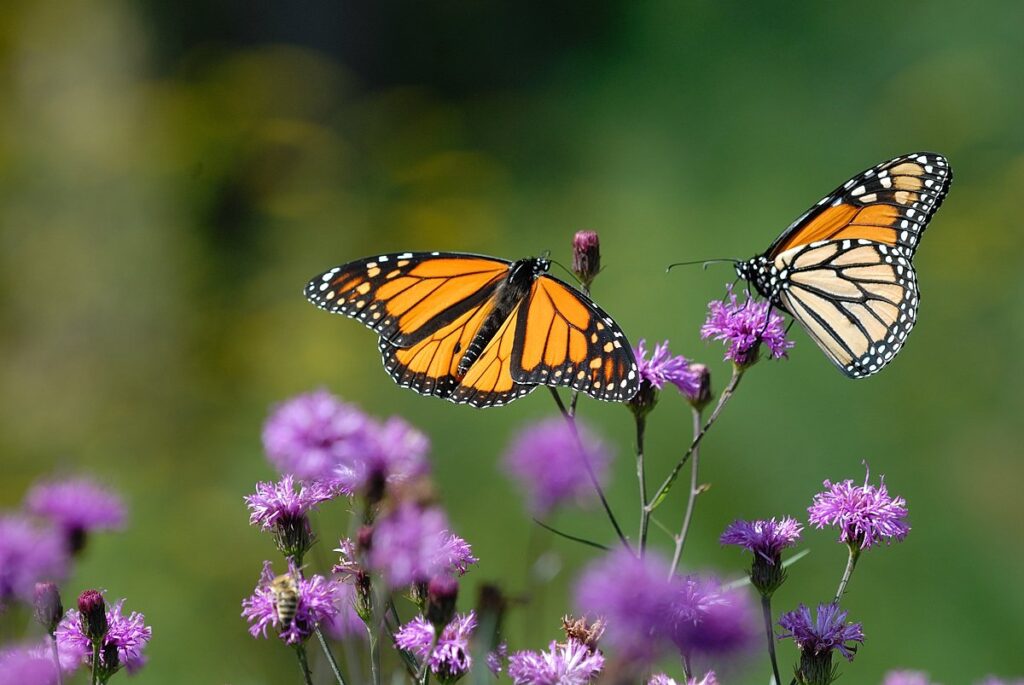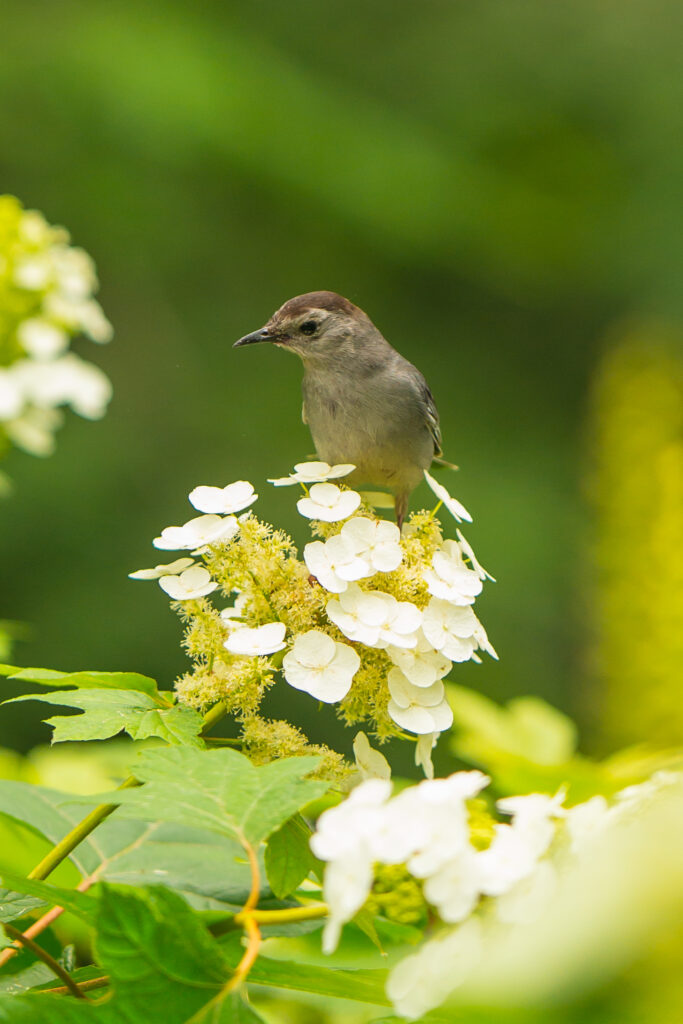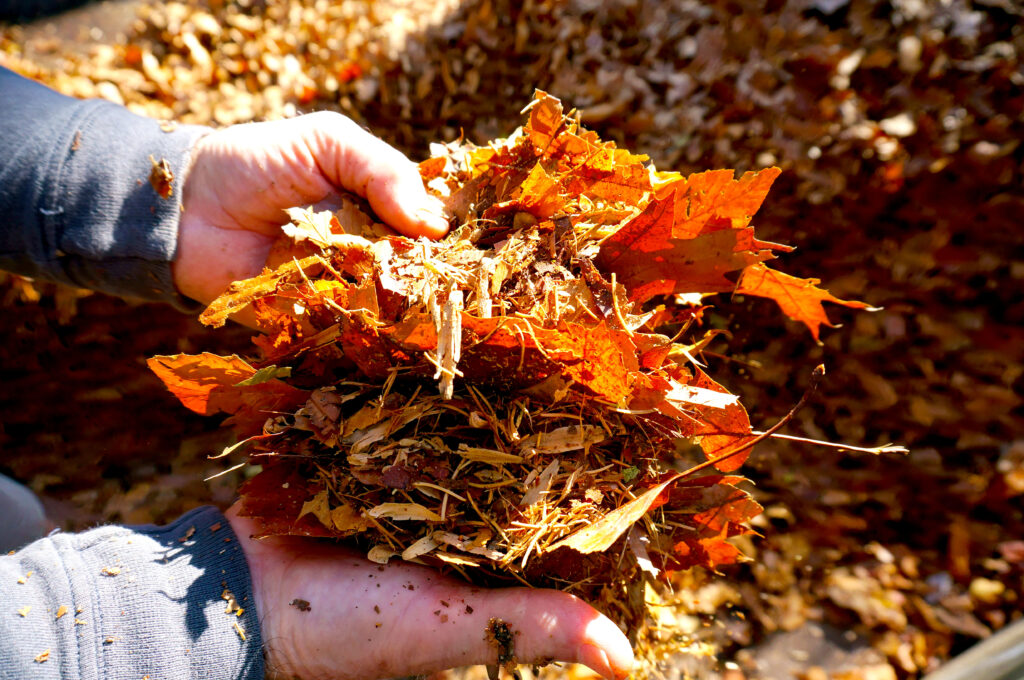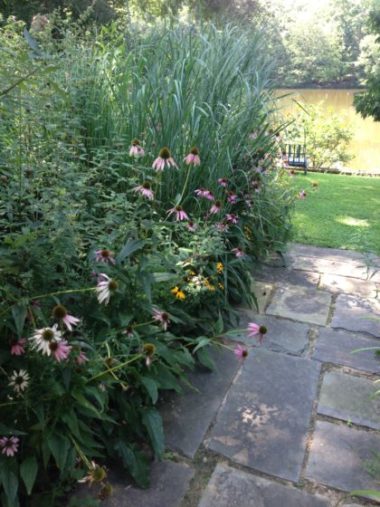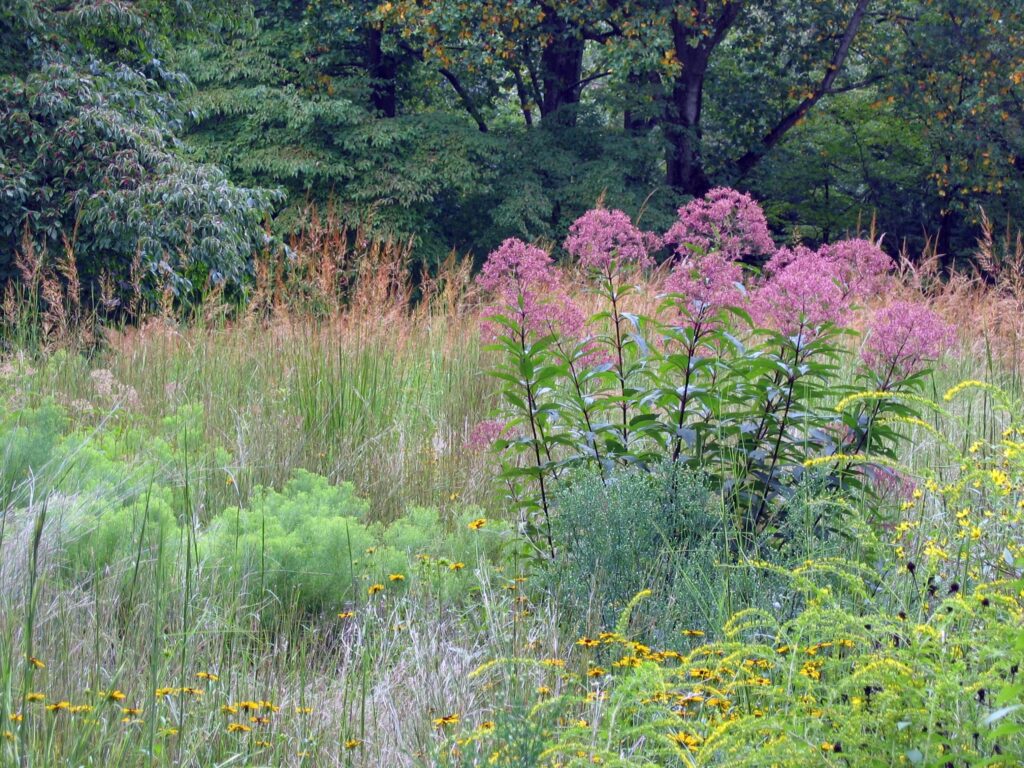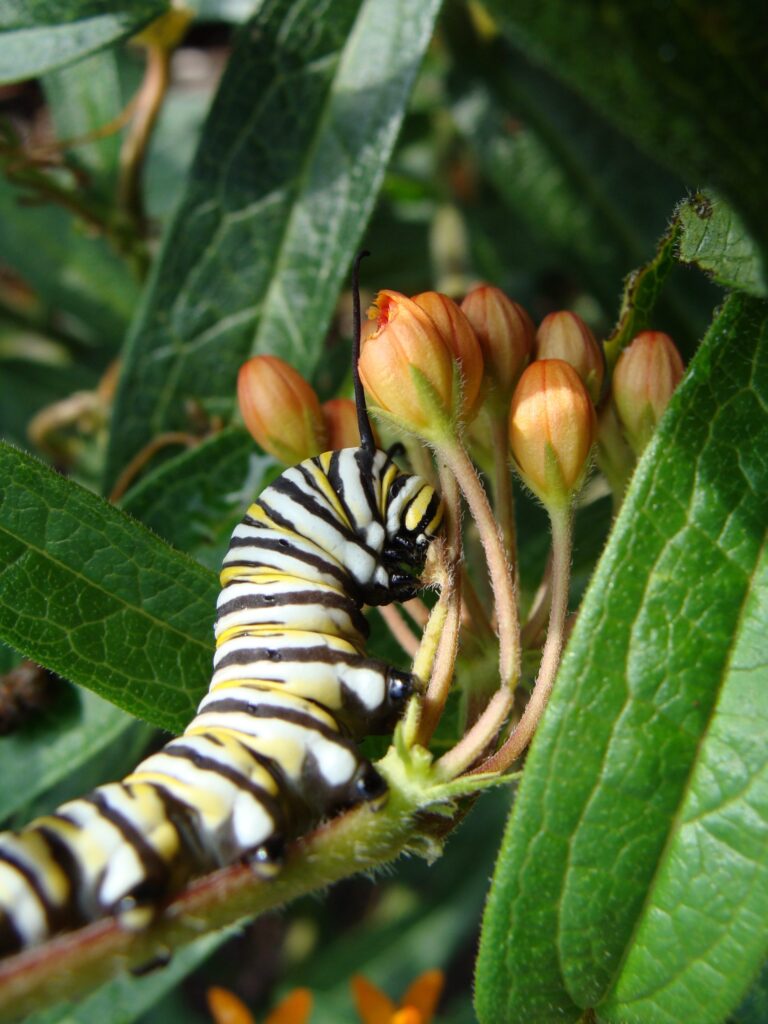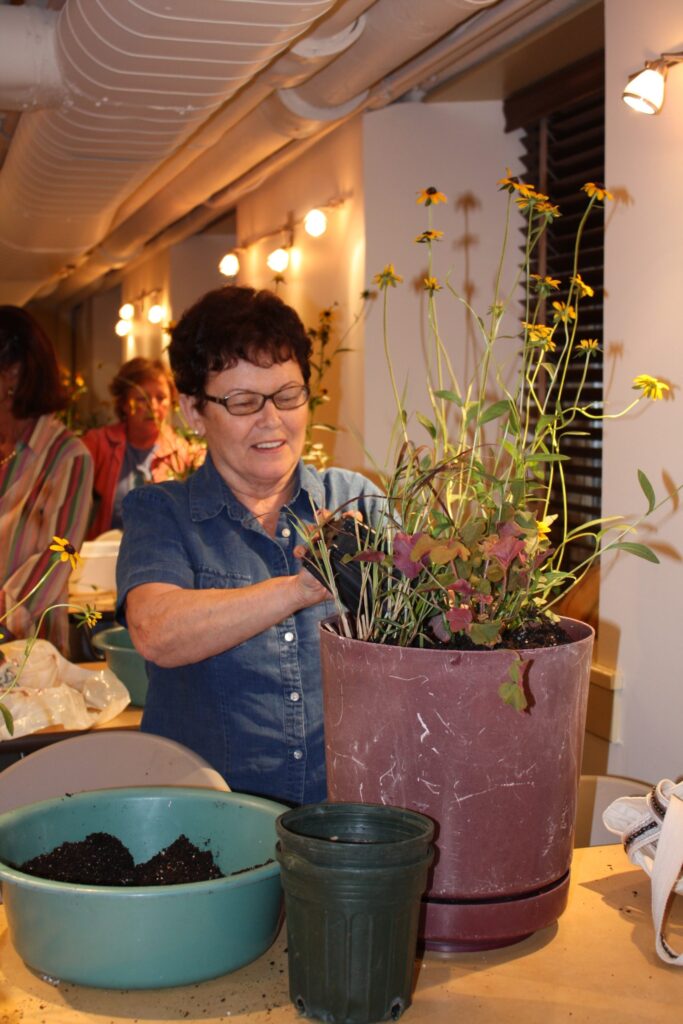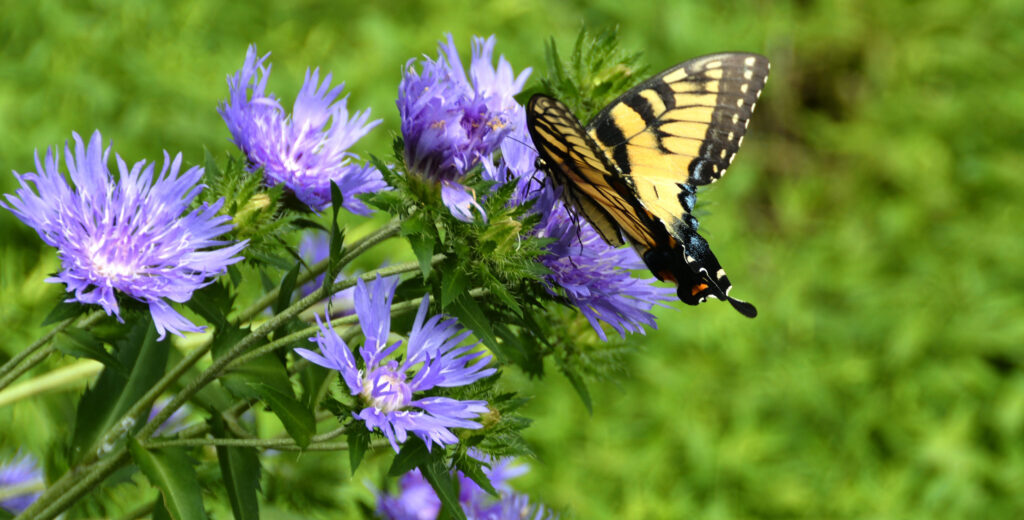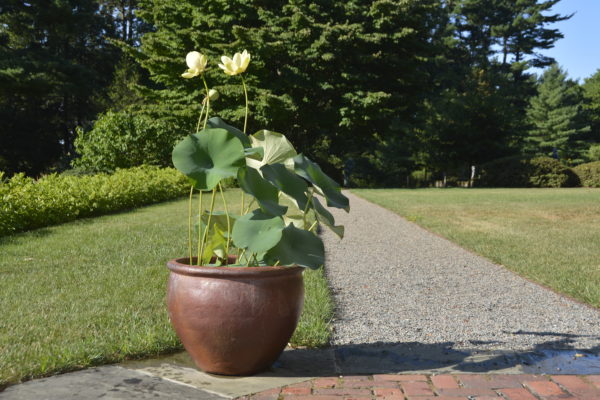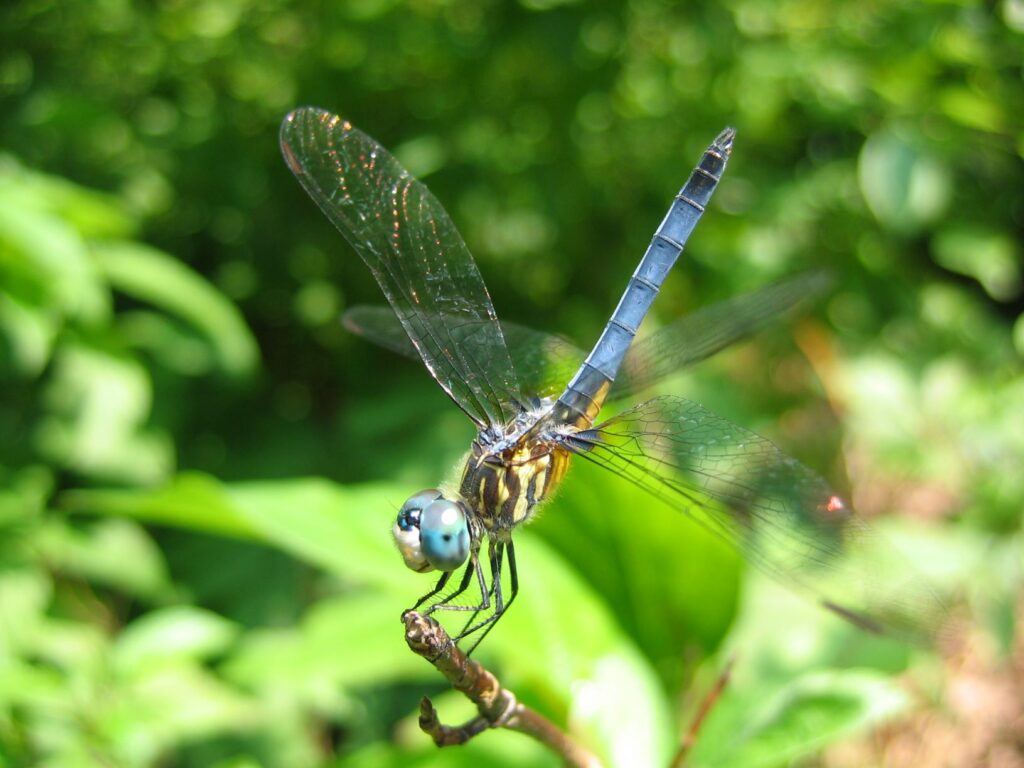The genus Vernonia, commonly known as ironweed, is an often-overlooked yet beautiful aster relative replete with eye catching pink to purple late summer-to-fall blooms. Vernonia ranges from compact and tidy plants to towering behemoths topping out at over 13 feet in height, which are sure to make a statement in the landscape. Sam Hoadley, Mt.
MoreTransform your landscape into a garden that attracts a wealth of wildlife and unlock the important connections between pollinators, plants, and habitats.
MoreLearn how to turn your household waste into nutrient-rich compost with the help of home-scale composting. Join Rick Carr, Senior Farm Director of Rodale Institute, as he shares the key elements of composting effectively in your backyard. Learn how to quickly identify and troubleshoot problems when they arise during the process, and how to harvest
MoreReducing the American lawn is good for everyone. We can add more native plants, reduce flooding in our watershed, attract pollinators, and bring balance to our ecosystems. Dive into some examples projects where native plant solutions have replaced lawns. Class will focus on a variety of site conditions such as sunny slopes, low wet spots,
MoreLate summer is a great time to make observations and devise a plan for the fall to improve your garden. Explore ways to create diverse, attractive, and functional landscapes using basic principles of naturalistic gardening design. Learn how to work with your site to solve problems and maximize its use. Discover ways to design pathways
MoreLearn about the amazing adaptations of caterpillars from host specialization to defensive mechanisms. Discuss the critical role caterpillars play in food webs and how to promote them in your garden. Discover signs of caterpillar activity, tools to identify them, and explore outdoors to hone your search skills. This program takes place in-person at Mt. Cuba
MoreKick back, grab a drink, and dig into creativity at our Thursday evening happy hour class! In this fun, hands-on session, you’ll learn how to design a beautiful container garden with three colorful selections of native plants, some soil and your imagination. Enjoy after-hours access to the gardens, a live demo, and everything you need
MoreProtecting pollinators, and the essential ecological services they provide, requires an all-hands-on-deck approach. Be a part of the solution by contributing to pollinator conservation right in your own yard, neighborhood, town, or city through individual actions and collaborative efforts. Learn about pollinator diversity, Delaware native bees, how to make your local landscape pollinator-friendly by providing
MoreLearn how you can turn just about anything that holds water into a low-maintenance water garden.
MoreDragonflies have been around for 300 million years, with several extinct species having wingspans of over two feet. Inhabiting sites around lakes, ponds, streams, and wetlands, they are excellent predators, eating mosquitoes and other small insects. Examine the habitats that support dragonflies, as well as their lifecycles, foraging behaviors, and reproductive strategies. This program takes
More

